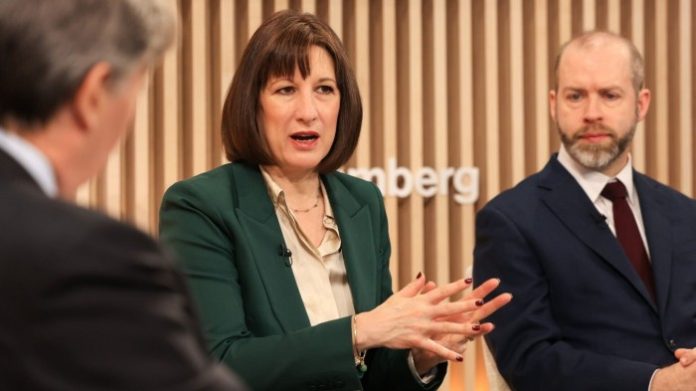Antitrust attorneys are questioning the “extraordinary” move by government ministers to remove the chair of Britain’s competition watchdog, suggesting that it may have a “chilling” effect on other regulatory bodies in the UK.
The government confirmed the departure of Marcus Bokkerink as chair of the Competition and Markets Authority on Tuesday evening, following reports from the Financial Times that business secretary Jonathan Reynolds had intervened.
Chancellor Rachel Reeves, speaking to Bloomberg in Davos on Tuesday, indirectly criticized Bokkerink: “He acknowledged that it was time for him to step aside and make room for someone who aligns with the mission and strategic direction of this government.”
This month, ministers instructed 17 major regulators in Britain to outline how they plan to contribute to boosting economic growth in the UK. However, many lawyers and advocates expressed surprise at Bokkerink’s resignation.
“To be frank, it was quite unexpected,” said one business advocate. “We’ve had numerous discussions with the CMA and it appeared they were understanding and implementing changes.”
One antitrust lawyer at a London firm suggested that this move could have a “chilling and intimidating effect” on independent regulators throughout the country.
“While it may provide short-term reassurance for businesses, if competition policy becomes subject to political whims, it becomes less reliable and predictable, which can undermine business confidence,” they stated.
“It’s an unusual step by the government to interfere to this extent in a competition authority,” they added.
Bokkerink’s departure raises concerns about whether ministers are giving preference to the demands of large corporations over competing priorities such as consumer protection and environmental concerns.
The government has appointed Doug Gurr as the new interim CMA chair, who oversaw Amazon’s UK business during the company’s dispute with the CMA regarding its stake in Deliveroo, which was ultimately approved in 2020.
Some view this forced departure as a “desperate move from a struggling government” aiming to regain favor with business leaders after imposing additional regulations and taxes on corporations in the previous year.
There is also speculation regarding the fate of CMA’s chief executive Sarah Cardell and whether she might also be replaced.
Andrew Griffith, shadow business secretary, questioned the government’s focus on regulatory reform to reduce the burden on businesses but found it curious that the non-executive chairman of the CMA was the initial target.
© Charlie Bibby/FT
Cardell has been emphasizing the regulator’s commitment to the government’s growth mandate. She mentioned that the agency plans to review its merger remedies, potentially approving more mergers based on undertakings like price freezes rather than asset divestitures.
One source mentioned positive discussions between Cardell and ministers about her role since Bokkerink’s resignation.
Max von Thun, Europe director at the Open Markets Institute, highlighted the CMA’s global efforts to counter increasing market concentration, especially in the tech sector dominated by a few large companies.
Legal experts noted the appointment of Clare Barclay, previously at Microsoft UK and now on the government’s Industrial Strategy Advisory Council, as a sign of industry influence.

© Gov.uk
In a statement released on Tuesday night, Bokkerink highlighted his efforts to refocus the CMA on empowering consumers and promoting effective competition, rather than being hindered by powerful incumbents.
Business organizations welcomed the government’s intervention. Craig Beaumont from the Federation of Small Businesses and Stephen Phipson from Make UK both commended the government for making regulations more conducive to growth.
One individual viewed the CMA as an obstacle and believed Bokkerink’s removal was intended to send a message to the agency’s staff.
This development coincides with the CMA receiving expanded powers to regulate digital markets, notably initiating an investigation into Google’s market status and potential tough conduct rules.
The government is expected to provide strategic guidance to the CMA in the near future, outlining its priorities for the regulator. However, lawyers expressed uncertainty about Labour’s specific expectations for the CMA beyond a focus on growth.
“The government appears dissatisfied with the CMA but lacks clear perspectives on the problems,” stated a senior antitrust attorney.
Additional reporting by Ivan Levingston




